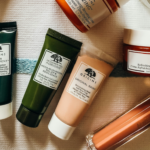With only a few days left until New Year’s Eve, the majority of Americans either don’t have plans to celebrate the occasion, or intend to stay home with their families. One-quarter say they will host a party, attend a party, or go out, but altogether the data say not many big bashes to celebrate the end of 2021.
While a simple explanation to forgoing New Year’s Eve plans could be a desire to avoid potential exposure to COVID-19, data point to a holiday that’s traditionally low-key. A CivicScience study from 2013 showed 40% of U.S. adults were staying at home, and 25% had no plans at all for New Year’s Eve. This year, there are certainly more people reporting they have no plans, but altogether, the percentages are comparable to years past.
Among the survey respondents who plan to celebrate the new year, the largest percentage are keeping things small (53%) but a significant portion will be celebrating with just as many people, or more, than they did in 2019 (38%).
It’s no surprise that the intent to celebrate on New Year’s Eve, particularly with other people, varies by generation. Bars, clubs, and house gatherings will be significantly populated by people between 18 and 24. While there are a decent number of Millennials headed out to celebrate too, generally speaking, staying home or having no plans both increase with age.
People who report concern about public spaces share an elevated likelihood to have no New Year’s Eve plans or to say they are staying home with their families. Those who are unconcerned about public spaces certainly have more scheduled parties or activities out of the house than those who are concerned, but when it comes to having no plans, the difference between the two groups is significantly smaller.
Vaccine status is another indicator that December 31 might be a less popular holiday to celebrate with others. People who are already vaccinated against COVID report having no plans more than people who are unvaccinated.
While this year’s New Year’s Eve plans are influenced in part by concerns about COVID-19, what’s more apparent is the “stay at home” vibe on New Year’s Eve appears to be the modus operandi for a significant portion of American households. Perhaps after Thanksgiving and Christmas, celebrators are looking for relaxation before returning to work and kicking off a new year of life.








